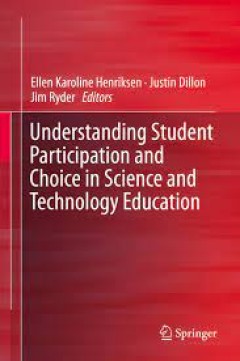Filter by

Handbook of Academic Integrity
The book brings together diverse views from around the world and provides a comprehensive overview of the subject, beginning with different definitions of academic integrity through how to create the ethical academy. At the same time, the Handbook does not shy away from some of the vigorous debates in the field such as the causes of academic integrity breaches. There has been an explosion of in…
- Edition
- -
- ISBN/ISSN
- 978-981-287-097-1
- Collation
- XXXV, 1097
- Series Title
- -
- Call Number
- 371

Unequal Partners American Foundations and Higher Education Development in Af…
This book offers a nuanced analysis of a US-led foundation initiative of uncommon ambition, featuring seven foundations with a shared commitment to strengthen capacity in higher education in Sub-Saharan African universities. The book examines the conditions under which philanthropy can be effective, the impasses that foundations often face, and the novel context in which philanthropy operates t…
- Edition
- -
- ISBN/ISSN
- 978-1-137-59348-1
- Collation
- 1 b/w illustrations, 5 illustrations in colour
- Series Title
- -
- Call Number
- -

Understanding the Nature of Motivation and Motivating Students through Teachi…
This book is based upon three interrelated open naturalistic studies conducted to better characterise the motivational orientation of students in higher education. Open semi-structured individual interviews were conducted with undergraduates, students at community colleges and students in taught postgraduate courses in Hong Kong. The analysis used an exploratory grounded theory approach and res…
- Edition
- -
- ISBN/ISSN
- 978-981-287-883-0
- Collation
- 4 illustrations in colour
- Series Title
- -
- Call Number
- -

Understanding Student Participation and Choice in Science and Technology Educ…
Drawing on data generated by the EU’s Interests and Recruitment in Science (IRIS) project, this volume examines the issue of young people’s participation in science, technology, engineering and mathematics education. With an especial focus on female participation, the chapters offer analysis deploying varied theoretical frameworks, including sociology, social psychology and gender studies. …
- Edition
- -
- ISBN/ISSN
- 978-94-007-7793-4
- Collation
- 10 b/w illustrations, 20 illustrations in colour
- Series Title
- -
- Call Number
- -

Facing Trajectories from School to Work Towards a Capability-Friendly Youth …
This book promotes a radical alternative impact on youth policy in Europe to overcome the situation of vulnerability and discrimination of a growing number of youngsters in their transition from school to work. It follows a Human Development perspective in using the Capability Approach (CA) as analytical and methodological guiding tool to improve the social conditions of the most socially vulne…
- Edition
- -
- ISBN/ISSN
- 978-3-319-11436-1
- Collation
- 15 b/w illustrations
- Series Title
- -
- Call Number
- -

Spotlight on China Changes in Education under China’s Market Economy
Fuelled by forces of globalization, China has gradually shifted from a centrally planned economy to a socialist market economy. Under the market economy China has experienced a massive and protracted economic boom. It is not clear however whether recent economic changes have brought the same miracle to education in China. Spotlight on China brings together established and emerging scholars from…
- Edition
- 1
- ISBN/ISSN
- 978-94-6209-881-7
- Collation
- -
- Series Title
- -
- Call Number
- -

Economics of higher education : background, concepts, and applications
This book examines the many ways in which economic concepts, theories and models can be used to examine issues in higher education. The topics explored in the book include how students make college-going decisions, the payoffs to students and society from going to college, markets for higher education services, demand and supply in markets for higher education, why and how state and federal gov…
- Edition
- -
- ISBN/ISSN
- 9789401775069
- Collation
- -
- Series Title
- -
- Call Number
- -

Ed.D. Programs as Incubators for Social Justice Leadership
This book shares the thoughts of mostly North American scholars on many interrelated topics that have not previously been linked in academic research. The focus of the book is the belief that the Ed. D. can prepare highly competent justice-oriented scholars who will be engaged with communities. Among these future leaders, the contributors envision educators who not only lead public schools, but…
- Edition
- -
- ISBN/ISSN
- 9789463003964
- Collation
- -
- Series Title
- -
- Call Number
- -

The Changing Epistemic Governance of European Education
Knowledge is power. It is materialized in metrics, policy instruments and embedded in networks. The governance of European higher education, insightfully argues Romuald Normand, is not structured by hierarchical public policies, by governmental exercise of authority or heroic decision making. Normand makes a sophisticated intellectual argument, building upon the work of Foucault, Latour (Sociol…
- Edition
- -
- ISBN/ISSN
- 978-3-319-31776-2
- Collation
- XVI, 235
- Series Title
- Educational Governance Research
- Call Number
- -

The Changing Academic Profession in Japan
This volume provides an empirical and qualitative analysis of the nature and extent of the Japanese academic profession, with a special focus on the changes that occurred in the period between 1992 and 2007. Based on responses to two comprehensive surveys administered to faculty samples with a similar questionnaire, the book presents key aspects of the academic activities and views of Japanese …
- Edition
- -
- ISBN/ISSN
- 978-3-319-09468-7
- Collation
- VIII, 270
- Series Title
- The Changing Academy – The Changing Academic Profession in International Comparative Perspective
- Call Number
- -
 Computer Science, Information & General Works
Computer Science, Information & General Works  Philosophy & Psychology
Philosophy & Psychology  Religion
Religion  Social Sciences
Social Sciences  Language
Language  Pure Science
Pure Science  Applied Sciences
Applied Sciences  Art & Recreation
Art & Recreation  Literature
Literature  History & Geography
History & Geography